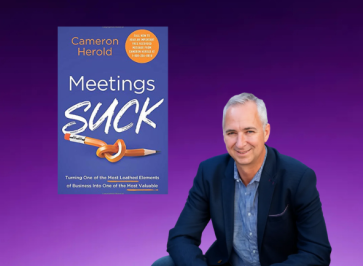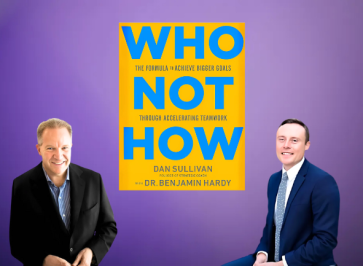For some, selling a business can be like getting a divorce.
They are over it!
They have been stuck in their operations for too long and riding the entrepreneurial waves up and down and now it’s time to get out and cash in ASAP while they can.
For others it’s like parents getting the empty nest syndrome. They have their identity intertwined with the business, they cared for it from its birth.
They grew a team, instilled the culture and now it’s time to let go. Or is it?
What about taking on the role of the visionary and having someone else run your business instead? How does that compare?
1. Financial Outcomes & Risk
- Selling
- Money right now.
- Reduces risk if your business is in decline or will be soon, e.g. likely to be replaced by AI & Automation
- If your biz currently needs you to run it, the buyer might want an “earn out” where you stay in the business (up to 3 years) to handover.
- Someone else runs it
- With someone else running the ship, you now have time to find opportunities & partnerships.
- Act as an Investor.
- No earn out and more valuable to a buyer if someone else is running it.
2. Control & Efficiency
- Selling
- No further opportunity to create more value or use efficiency to reduce costs.
- Someone else runs it
- You set the direction and your operator implements.
- A fresh set of eyes from your operator can expose new opportunities to create value and reduce costs.
- You need to be comfortable with letting someone else take the reins and deliver on outcomes.
- I recommend setting a clear vision and having 1 sync up each week with your operator to discuss business health, direction and agree on priorities.
3. Lifestyle Implications
- Selling
- A “cash now” option could be very desirable.
- Do you have enough to retire off the sale or will you need to spin up a new venture?
- Someone else runs it
- Most entrepreneurs are almost always looking to start another business some point later after selling. They are addicted to entrepreneurship.
- Getting someone else to run your biz allows you to act as an Investor.
- You have bandwidth to spin up new businesses.
- Have multiple income streams from multiple businesses.
4. Legacy and Succession Planning
- Selling
- Financially, this might mean you are leaving money to your kin. It’s like a “1 and done” thing.
- If you are completely out of your business, whatever identity and culture you built inside that business could completely change.
- If your impact on society is linked to your business, your brand reach and community impact may reduce unless there is a new purpose to carry your voice.
- Someone else runs it
- Allows the founder to gradually step away if they desire.
- A business can be an ideal asset to pass onto the family. I have seen this done well and badly.
- A family member may not have the interest or ability of the founder.
- Having an experienced operator run the business can enable future generations of the family to benefit financially and also play an “investment” role.
Talk soon,
Lloyd
PS – Maybe it is not one or the other. If you have a team of 5 or more, you might consider having someone else run your team for you.
It will make the business more valuable, you still control the direction of the business and if you can show the business doesn’t require the founder it will be more valuable and easier to sell.
Want to explore if a fractional operator will work for your business? Let’s chat.








